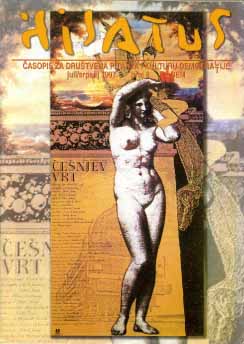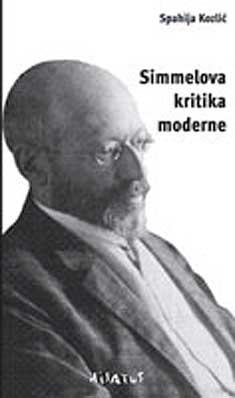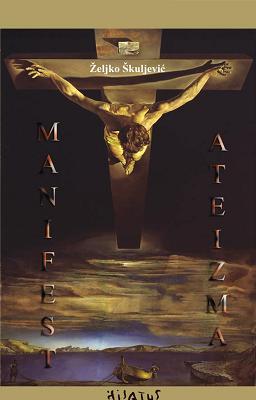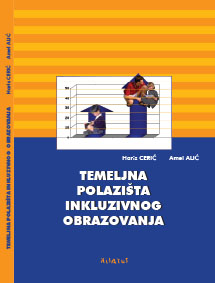


Keywords: Cyrenaic thought; hedonsim; Aristippus; rational pleasure; Epicurus; carnal pleasure
It is inherited attitude that the lack of needs attributed to the self-sufficiency of the Cynic’s doctrine is probably Socratic method, while Cyrenaic school mainly regarding the quantity of “physiological hedonism”, appears incredible. Although Antisthenes, during his life, underestimated Aristippus glorification of pleasure understood as the life primordial fact, their differences were not significant. Finally it is all about the common substance and the same ethical notion; the concept of self-restraint based on rational knowledge. Although Cynics accept Socrates idea that ratio is the foundation of virtue, they do not deny involuntary pleasure but only (pleasure) which is passionately sought. Cyrenaic was able to discipline pleasure (restrain himself as the one who enjoys), analyze attentively and choose rationally. He (Cyrenaic) could quit the utmost pleasure and found something good in the worst. He was capable of receiving pleasure in the best possible way but also to reject the same pleasure. The following anecdote describes that Cyrenaic position: Three hetaerae were offered to Aristipppus by Dionysus to choose the most beautifulone, he (Aristippus) selected all three (having in mind that even Paris was not lucky although he gave priority to Aphrodite) and later on release them all. Aristippus heard objections regarding his noble life and answered that it couldn’t be bad solution because “bonvinant” style is maintained and respected during religious ceremonies.Philosophical improvement of hedonistic principle is more attached to the subsequent followers; to Aristippus Junior (metrodidactos) and Theodore named atheos. Apart from them the following disciples should be mentioned; Ethiopian from Cirenaica, Parabates, Hegesias peisithanatos (who advocated suicide) and Anikerid who paid ransom and thus freed Plato of slavery. There are little available evidence which could determine the meaning of the link between Cyrenaic epistemology and Protagoras relativism. Both in antique and modern discussions this hypothesis is dispersive and non-conclusive. Zeller claims that Cicero, Eusebius and Aristocles of Messene emphasized discrepancy regarding the above mentioned link, but in spite of discordance their teachings are identical in the affirmation of subjectivity of all our impressions. George Grote shares the same philosophical insight into deep concordance of seemingly antagonist teachings. Protagoras concept is well known; “man is the measure of everything..” Bearing in mind tradition Guthrie considers Aristippus and Cyrenaics (epistemologically speaking) less skeptical because they will not ultimately deny the reality (the external world) out of personal (human) scope. In any case Mannebach point of view is largely accepted in philosophical circles; namely that “it’s neither proved nor even probable” that Cyrenaics followed Protagoras.The issue of non-possibility of rational pleasure (the idea inspired by Plato’s Fileb) does not provide simple answer. Reconsidering the idea of Goodness Platonized Socrates meditates: if that goodness is neither rationality (fronesis) nor pleasure (hedone), what’s the third possibility? Judging that Goodness must be complete and self sufficient than it can’t be the mixture of pleasure and rationality. Fileb insists that pleasure is not goodness according to its nature; it is not quantitatively or qualitatively unlimited. Socrates introduces the idea of Mind… Although it seems that blending pleasure and ratio (hedonea and nus) is desirable solution, the dominance of ration over pleasure is evident not without Socrates influence. Epicurus lauded ratio as supreme value which triggered resistance among Aristippus followers against his hedonism. Does it imply impossibility of rational pleasure? Is it feasible assumption to derive pleasure out of ratio or vice versa? (that possibility exists in Epicurus philosophy). His spiritual serenity eliminates the idea of pleasure and the idea of sage which is suggested in some modern discussions (Marcuse).Having in mind that Aristippus was familiar with philosophy of Plato his animosity towards carnal pleasures is understandable. Hedonists praise elevated character of senses (the very opposite disposition for those who scorn carnal pleasures), meaning that sensitivity is sensual and “skin of the reality deserves devotion”. Which kind of carnal pleasures are preferred by hedonistic philosophy? Possibly the carnal pleasures of hedonistic angel, as suggested by Michel Onfray, or; to put it in another words, “hedonism of the carnal matter, the very wisdom of organism”.If freedom is condition sine qua non of hedonistic life Aristippus choice makes angry (even today) puritans and fake moralists. During his life he was blamed that “he loved old wine and hetaerae”. It seems today a bit more understandable why Aristippus text “to those who hate old wine and hetaerae” doesn’t exist. Thanks to “gloomy Platonists”, above all…
More...
Keywords: Modernity; sociology of culture; fashion; economic sociology; Neo-kantianism; Frankfurt School; Georg Simmel;
This book represents a result of a longstanding research of the German thinker Georg Simmel’s philosophical-sociological standpoints and his influence on the twentieth century social thought. The approach to the research of Simmel’s philosophical image of the world is primarily of monographic character, and there are two reasons for that. First, Georg Simmel’s name is almost unknown in philosophical, and even sociological, circles in the broader space of the Balkans. Presentation of his entire opus was thus in itself the imposed task. Second, decoupage of Simmel’s standpoints out of many postmetaphysical currents from the end of the nineteenth and beginning of the twentieth century, even though being a hard task represents a big challenge for a researcher. Because, this thinker, although often partially said and full of allusions, by opening the new horizons through analysis of phenomena of everyday life in modern era, directed the philosophical interest into multiple new currents, but also adhered to the analysis of philosophy from the angle of critique of its foundational concept. Simmel’s influence on the Frankfurt School’s speculative starting points, existentialist philosophy, phenomenology and, of course, establishment of specialized sociological disciplines aren’t thus surprising.
More...
Keywords: atheism; enlightenment; atheism of reason; New Atheism; secularism
The very title of the book, its polemical structure as well as the introductory assumptions, could seem rather proscriptive and exclusivistic to delicate readers. Regardless of the first part of preliminary jigsaw, Manifest (additional confusion and dilemma are derived from etymology of the Latin word manifestus meaning obvious, lucid, plain), doesn’t have aspiration to express the integral program neither certain rigid rules which atheists should accept and follow in an organized way. The core of the issue is more adequately reflected in the debate atheism vs. theism, namely philosophy and / or theology which requires “altercation” (understandably not in the strict juridical meaning) as a sort of dialogic agonistic or “competition” in the most positive sense of the word: sophistic. Apart from controversy which is embedded in the philosophy of religion as eminently philosophical discipline, the second chapter (Atheism of reason) to certain degree suppresses her “theological (half) sister”, namely “religious philosophy of religion”. Arguing with some of prominent connoisseurs of Greek philosophy related to the a/theology of Greek thinkers I don’t find pretentious or scandalous. The critical perception of religion and religious phenomenon, apart from partially paradoxical notions; “polytheistic monotheism”, “scholastic nonscholastics”, “Christian atheism”, “priests nonbelievers” etc, is not something unknown or unprecedented in this type of literature. Enlightenment doesn’t imply, as many authors claim, the equality between atheism and enlightenment. With the exception of Holbach, who is, not utterly unjustified and with the certain amount of cynicism, called “divine”, the rest didn’t transcend deism including Francois-Marie Arueta, alias Voltaire according to whom this turbulent period is named. Then we must mention Ludwig Feuerbach (I’m not certain that he deserves to be qualified as “left Hegelian” bearing in mind that he treated idealistic philosophy substantially as a sort of theology) and his idea of “manlike god”, then Marx who, opposing his predecessor, the genesis of religious alienation reveals in the pragmatic (social) alienations. Mentioning the notorious critical-religious sentence “religion is opium of the people” not “opium for the people”, I assume that theological and dialogical perception of Marx is significant for this dialogue, which is rather unpleasant – from theological point of view.- The bewilderment, dismay and consternation of most theologians triggered by New Atheism served as inspiration for the third and the last chapter of the book. Namely, New Atheism and old theologies initiate renewed reassessment of what is verily new or old. With a kind of inversion (or replacement) it would be appealing to become participant in debate between representatives of old atheism and new theologies. If we agree that, barring few exceptions, the time of the onomies is over (which is replaced by inevitable substitutes - so-called “secularized societies”), let us conclude that while endeavouring to learn and accept (not only for cognitive reasons) Other and Different it is possible for both sides to “ mutually respect their own contribution to controversial topics in public life”. (Habbermas). Denying intention to convert violently and without arguments anyone to “true (a)theism”, atheist and theists, in a Socrates sense, “are divided only by their ignorance”… Digna cum reverentia, to potential collocutors.
More...
Keywords: inclusive education; special needs; medical model; social model;
This is one of the first books on inclusive education in Bosnia and Herzegovina and the region. The book, as the title itself suggests, deals with a specific aspect of inclusive education. This is a consideration of the theoretical foundation of inclusive education. The authors have tried to prove that inclusive education is not just a humanistic-utopian idea of a short term, but it is possible to find some scientific and theoretical starting points for it, which ultimately opens the possibility of constituting the theory of inclusive education within the general science of education. Thus, this study represents an attempt to contribute to the scientific-theoretical validation of the idea of inclusive education, taking as its starting point some elements, primarily socio-cultural theories of L.S.Vigotsky, as well as some ethical reflections.
More...
Keywords: freedom; technique; techne; τέχνη; science; Heisenberg; Marx; cyberspace;
The frame of potential interpretations of humanity in the current century, the century which opens new dimensions of socializing in the form of virtual relations – as it is provided by world wide web, encapsulates substantial theoretical flexibility as well as a broad historical and philosophical elaboration of the early Greek notion – techne. On the other hand, answers to these questions are not reduced to philosophical self-pity, lamentations and shyness of speculation or “technoblasphemous” reasoning, nor to technical fascination with “greatness”, which has been present in positivistic philosophy from the modern age and expressed in diverse aspects of the same positivistic philosophy. The complexity of answers to the above mentioned dilemma is deepened by the fact that the twentieth century radically redirected the technical dexterity of the governing over nature to the space of the broad spectrum of social relations. There is abundance of illustrations of such cybernetic intentions of social movements at the end of the twentieth and at the beginning of the twenty first century. Such illustrations are rooted in the ever-increasing conviction in the indispensability of the meaningful, technocatricly arranged society which is bereft of all forms of individual decisions - having in mind that such decisions are let to the groups of experts which inevitably eliminates individuals of the social responsibility. The scientific era, as the most common term of the contemporary technical and cybernetic expansion, is featured by the rule over nature which is substantially different from the previous era in the way that new challenge is enabled, namely the challenge in which techne is no more only Aristotelian potential of tailoring the forms which nature implies, but much more the establishment of the artificial reality, which is against nature implying mythification of science inspired by technocatric negligence in the form of dogmatic theories of the society of knowledge.
More...